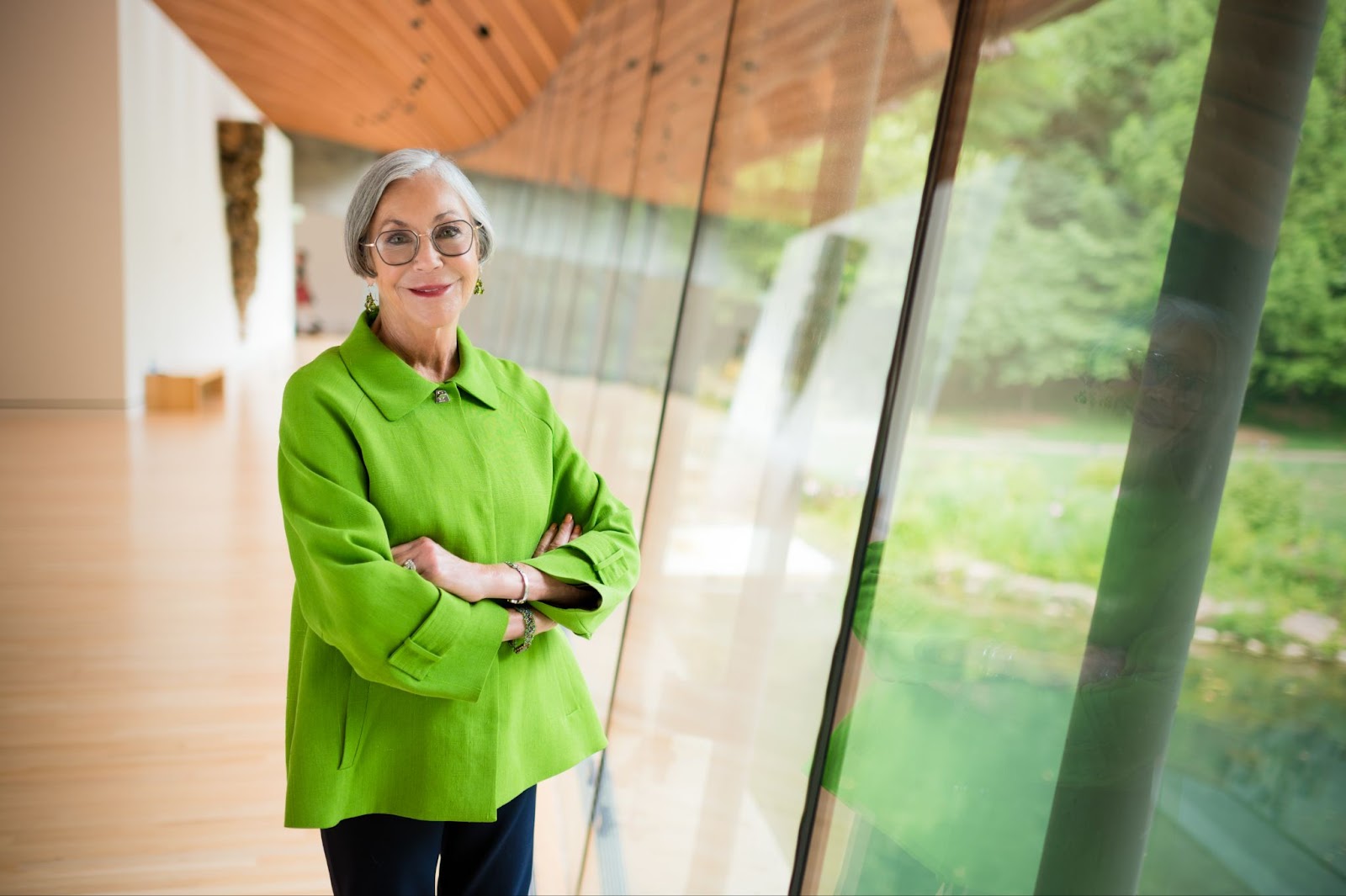Combining art, nature and a whole-human approach.

Our healthcare system is broken. There’s no healthcare system in the world keeping up with the skyrocketing rates of chronic diseases. In the U.S. alone, 90% of the $4.1 trillion spent on healthcare goes toward the treatment of chronic and mental health conditions. Clearly, the status quo is not working, and change and innovation are urgently needed.
Two groundbreaking initiatives founded on the science of how our daily behaviors and our environment impact health outcomes are the Heartland Whole Health Institute and Alice L. Walton School of Medicine being built by Alice Walton in Bentonville, Arkansas. For Walton, the focus on whole health was driven by the fact that the U.S. has the highest level of healthcare spending but ranks relatively low among developed countries in health outcomes.

“Heartland Whole Health Institute,” says Walton, “is dedicated to transforming healthcare by advocating, educating and redesigning a system that supports physical, mental, emotional and social well-being so people can live full and meaningful lives.”
Walter Harris, president and CEO at the Institute, understands the long-held frustration that many Americans feel toward the healthcare system, which is often too expensive and complicated for patients to navigate. “Alice’s drive and heart to create meaningful and sustainable change — to get to the root of these flaws — is unmatched,” Harris says.

Both the Institute and School will combine another of Walton’s lifelong passions: art. These facilities will be on the grounds of Crystal Bridges Museum of American Art, and will include 140 acres of hiking and biking trails, sculpture gardens and, of course, art.
Walton built Crystal Bridges to bring a world class museum to America’s heartland. My youngest daughter did her thesis on art and accessibility, and so I’ve been thrilled to visit the museum many times and see the gift it’s brought to families in the region. Since opening its doors in 2011, the museum has been visited by more than 12.2 million visitors, and all with no cost for admission. And around 400,000 children have experienced the museum through the Willard and Pat Walker School Visit program, which provides programs for school groups at no cost to the schools.
And Walton is just as passionate about the connection between art, nature and health. “I’ve personally seen how integrating the arts and nature into my own habits of caring for myself have had a positive impact on my overall health and well-being,” she says. “I believe I can help provide access to resources and experiences that can be transformative for individuals and communities.”
This led to founding a new School of Medicine with a new approach that considers physical, mental, social and emotional well-being. Pending accreditation, Alice L. Walton School of Medicine will offer a 4-year MD program that enhances traditional medicine with the arts, humanities and whole health principles.
The founding dean and CEO of the School of Medicine is Dr. Sharmila Makhija, an international expert on gynecologic cancer. Dr. Makhija is deeply committed to training the next generation of physicians and leaders who will serve to improve the health of communities in Arkansas and beyond. “The opportunity to build a medical school from the ground up with Alice Walton’s vision is a dream come true,” says Dr. Makhija.

At a recent health conference, Walton told me that one of her new favorite books — and now one of mine, too — is Your Brain on Art: How the Arts Transform Us, by Susan Magsamen, executive director of the International Arts + Mind Lab Center for Applied Neuroaesthetics at Johns Hopkins, and Ivy Ross, VP of Hardware Design at Google. The book details the science of the many ways art can be combined with traditional medicine to improve our physical and mental health, strengthen connections and prevent disease.
There’s no end of bad news and grim headlines about the unsustainable trend lines of chronic diseases. But what Walton is building is a great source of optimism. “By bridging mental, physical, social and emotional health,” she says, “we can create a truly thriving system for our region and the world.”